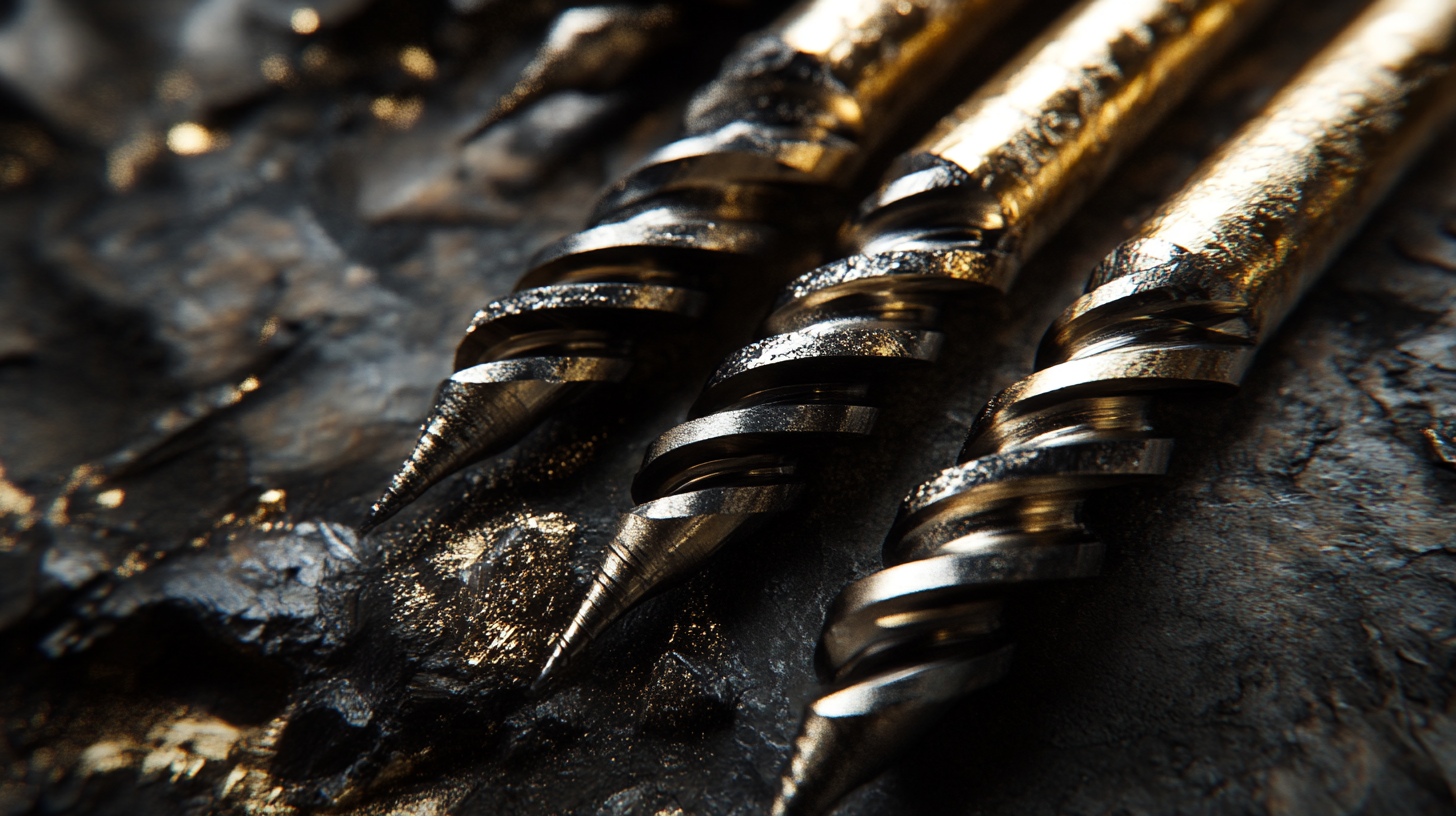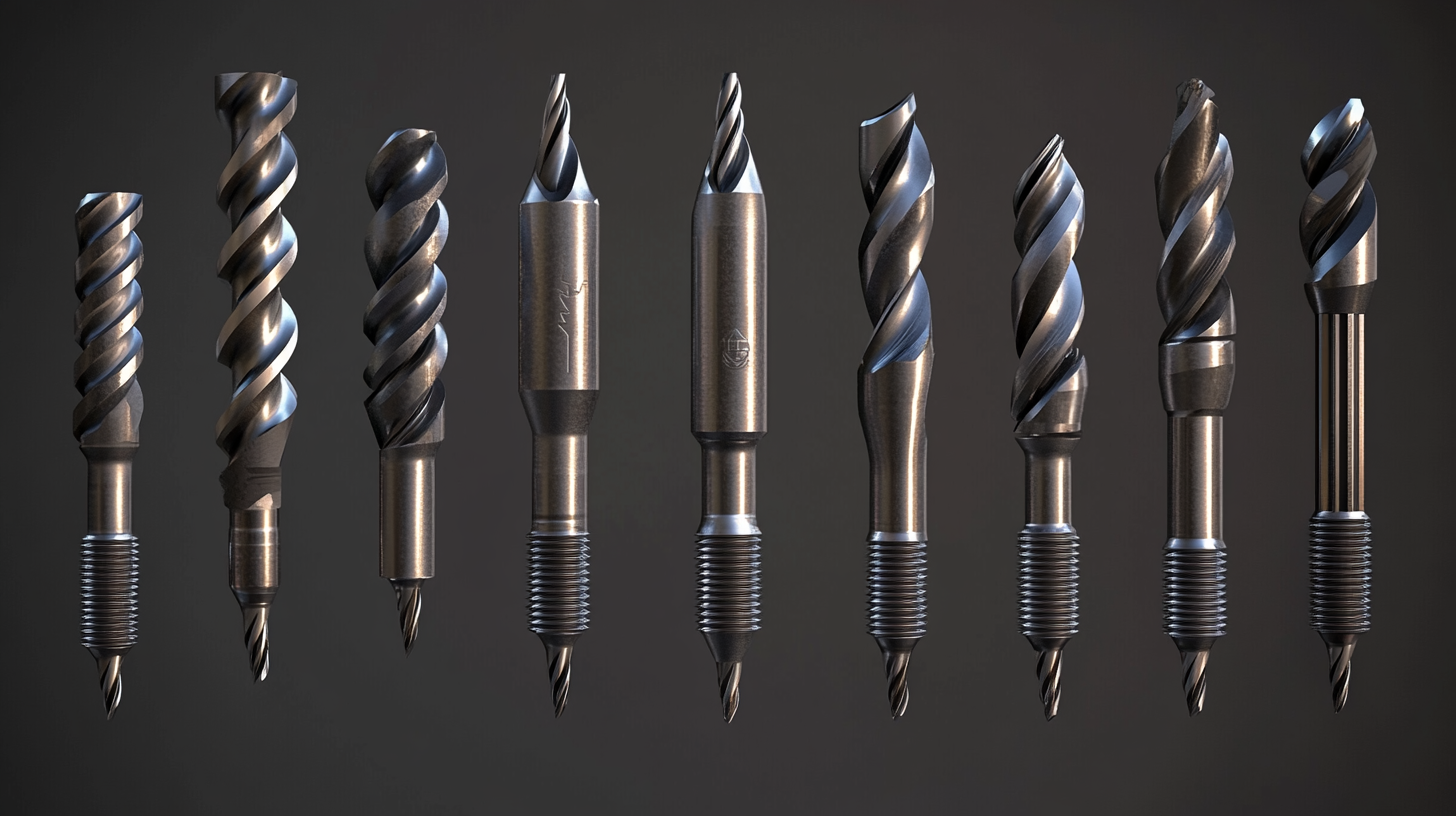The Definitive Handbook to Choosing the Perfect Carbide Drill Bit Set for Your Business Needs
In the ever-evolving landscape of manufacturing and construction, the selection of tools can significantly impact operational efficiency and product quality. One crucial component that often goes overlooked is the carbide drill bit set. According to a recent report by the Global Market Insights, the carbide tools market is projected to surpass $13 billion by 2026, driven by their unparalleled durability and precision. As industries increasingly prioritize automation and high-performance tooling solutions, the demand for specialized equipment like the carbide drill bit set continues to rise, highlighting its vital role in achieving optimal performance.
With various types of drill bits available, choosing the right carbide drill bit set tailored to specific business needs can be a daunting task. A well-chosen set not only enhances productivity but also minimizes manufacturing costs and downtime associated with tool failures. Research from the American Society of Mechanical Engineers (ASME) emphasizes that using the right tools can enhance drilling speed by up to 30%, thereby significantly improving project timelines. As such, understanding the nuances of carbide drill bit sets becomes essential for businesses looking to maintain a competitive edge in the market.

Understanding Carbide Drill Bits: Types and Their Applications
Carbide drill bits are essential tools in various industries, offering exceptional durability and precision. Understanding the different types of carbide drill bits available can help businesses make informed decisions tailored to their specific applications. Generally, carbide drill bits can be categorized into three main types: solid carbide bits, carbide-tipped bits, and cobalt bits. Solid carbide bits are engineered for maximum hardness and can handle high speeds, making them ideal for drilling through tough materials like stainless steel or hard plastics. Their robust nature allows for clean and accurate holes, minimizing the need for secondary processes. Carbide-tipped bits, on the other hand, combine a steel body with carbide tips, providing a balance between durability and affordability. These bits are particularly well-suited for wood and light metal drilling, where flexibility and longevity are key. Their design allows for easy sharpening, which can extend their life in versatile applications. Lastly, cobalt bits are known for their high heat resistance and are perfect for machining jobs requiring high levels of precision and speed. Choosing the right type of carbide drill bit depends on the material being drilled, the required hole size and depth, and the drilling technique employed. Each type offers unique benefits that can significantly enhance productivity and the quality of work. Evaluating the specific needs of your business will guide you in selecting the perfect carbide drill bit set that will deliver optimal results for your projects.

Key Factors to Consider When Selecting a Carbide Drill Bit Set
When selecting the perfect carbide drill bit set for your business needs, several key factors come into play. First and foremost, consider the type of materials you'll be working with. Whether you're drilling into hardened steel, aluminum, or even masonry, the drill bits must be specifically designed to handle those materials to ensure precision and efficiency. Recent tests have determined that not all drill bits are created equal; specialized options can dramatically improve performance and reduce frustration.
Another critical factor is the sharpness and maintenance of your drill bits. Choosing a high-quality drill bit sharpener can help extend the life of your tools, minimizing the need for frequent replacements. Products like the Drill Doctor provide an effective solution to rejuvenate dull bits, allowing you to maintain a productive workflow. This aspect is essential not only for cost savings but also for ensuring consistent results in your drilling tasks.
Lastly, consider the overall quality of the tools and their compatibility with the physical environment in which you'll be operating. The impact of the working environment cannot be overstated; it can influence how effectively your drill bits perform. Prioritizing a well-rounded approach that includes tool selection, maintenance, and consideration of your workspace will help you optimize your drilling tasks and enhance productivity.

Comparative Analysis: Quality vs. Cost in Carbide Drill Bit Sets
When selecting carbide drill bit sets for your business, a critical factor to consider is the balance between quality and cost. High-quality carbide drill bits often come with a higher price tag, but they typically offer superior performance, durability, and longevity. Investing in premium bits can lead to fewer tool changes, reduced downtime, and ultimately increased productivity in your operations. As you analyze your options, it's essential to evaluate how often and in what applications these drill bits will be used. The right set can significantly enhance your workflow.
On the other hand, cost-effective sets may seem appealing at first glance, but they might compromise on material quality and precision. Lower-quality bits might lead to faster wear and tear, resulting in frequent replacements and potential damage to the materials being drilled. Hence, it’s crucial to assess your business's specific needs. If your operations demand precision and reliability, it may be wise to prioritize quality over initial costs.
Furthermore, consider the long-term implications of your investment. A slightly higher upfront cost for superior carbide drill bits can translate to significant savings in operational costs over time. Understanding the trade-offs between quality and cost will empower you to make informed decisions that align with your business objectives, ensuring you acquire the best carbide drill bit set tailored to your operational needs.

Maintenance Tips to Extend the Life of Your Carbide Drill Bits
When it comes to the longevity of carbide drill bits, effective maintenance is crucial. According to industry data, proper care can extend the life of these tools by up to 30%. Regular cleaning after each use removes metal shavings and debris that can lead to corrosion and dulling of the cutting edges. Utilizing a soft brush or compressed air helps keep the bits in optimal condition for longer.
Another essential aspect of maintenance is understanding the appropriate speeds and feeds for different materials. A report from the Tool and Manufacturing Association indicates that using the correct parameters can reduce wear on drill bits by as much as 25%. For instance, drilling too fast can cause overheating, leading to premature failure. Hence, businesses should consider investing in RPM gauges to ensure they are operating within the recommended speed range.
Lastly, storing carbide drill bits correctly is vital. A survey by the National Institute for Metalworking Skills found that improper storage contributes to 40% of damage in drill bit sets. Using protective cases or racks that prevent contact between the bits minimizes the risk of chipping and accidental dulling. By adhering to these maintenance tips, businesses can maximize their investment in high-quality carbide drill bits and enhance their operational efficiency.
Evaluating Supplier Reliability for Carbide Drill Bit Purchases
When it comes to investing in carbide drill bits for your business, evaluating supplier reliability is paramount. The efficiency and longevity of your drilling tasks hinge not just on the quality of the bits you choose, but also on the dependability of the supplier behind them. A reliable supplier should offer consistent product availability, transparent sourcing methods, and excellent customer service to address any concerns that arise.
With numerous brands on the market, it’s essential to do your homework before making a purchase. Reading reviews and feedback from other professionals can provide valuable insights into a supplier's performance. For instance, understanding a supplier's return policy or warranty can be a significant factor in ensuring that you’re making a safe investment. When a supplier is transparent about their manufacturing processes and materials, it adds an extra layer of trust, allowing you to focus on other aspects of your business without worrying about product quality.
Additionally, consider suppliers who also offer resources on choosing the right bits for your specific needs. This can include guidance on the types of drill bits that are most effective for various materials, from wood to masonry. A knowledgeable supplier will help you navigate the options and make informed decisions, ultimately leading to better performance in your projects. By prioritizing supplier reliability, you’re investing in the long-term success of your machining tasks and overall productivity.
